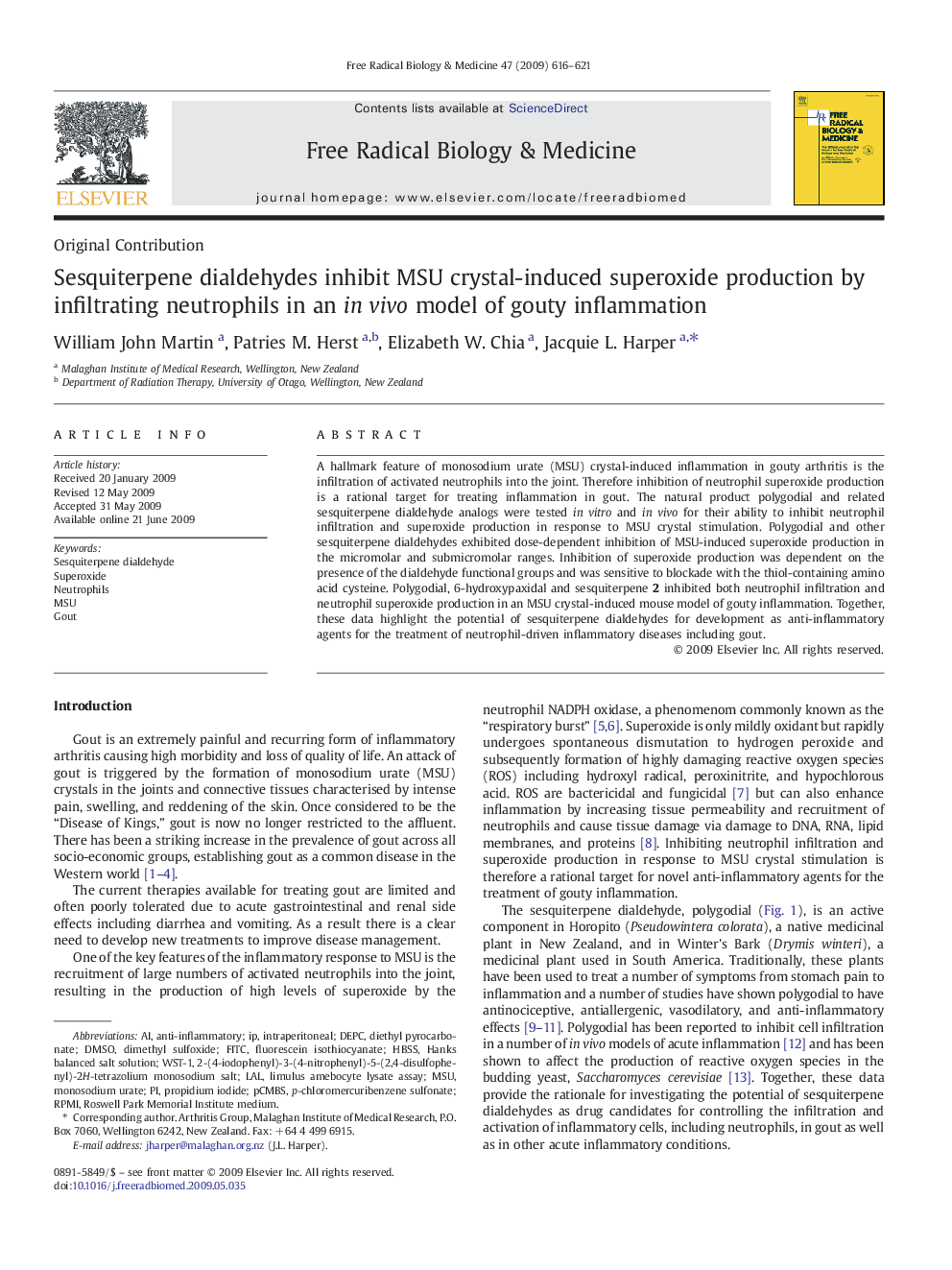| Article ID | Journal | Published Year | Pages | File Type |
|---|---|---|---|---|
| 1910534 | Free Radical Biology and Medicine | 2009 | 6 Pages |
A hallmark feature of monosodium urate (MSU) crystal-induced inflammation in gouty arthritis is the infiltration of activated neutrophils into the joint. Therefore inhibition of neutrophil superoxide production is a rational target for treating inflammation in gout. The natural product polygodial and related sesquiterpene dialdehyde analogs were tested in vitro and in vivo for their ability to inhibit neutrophil infiltration and superoxide production in response to MSU crystal stimulation. Polygodial and other sesquiterpene dialdehydes exhibited dose-dependent inhibition of MSU-induced superoxide production in the micromolar and submicromolar ranges. Inhibition of superoxide production was dependent on the presence of the dialdehyde functional groups and was sensitive to blockade with the thiol-containing amino acid cysteine. Polygodial, 6-hydroxypaxidal and sesquiterpene 2 inhibited both neutrophil infiltration and neutrophil superoxide production in an MSU crystal-induced mouse model of gouty inflammation. Together, these data highlight the potential of sesquiterpene dialdehydes for development as anti-inflammatory agents for the treatment of neutrophil-driven inflammatory diseases including gout.
